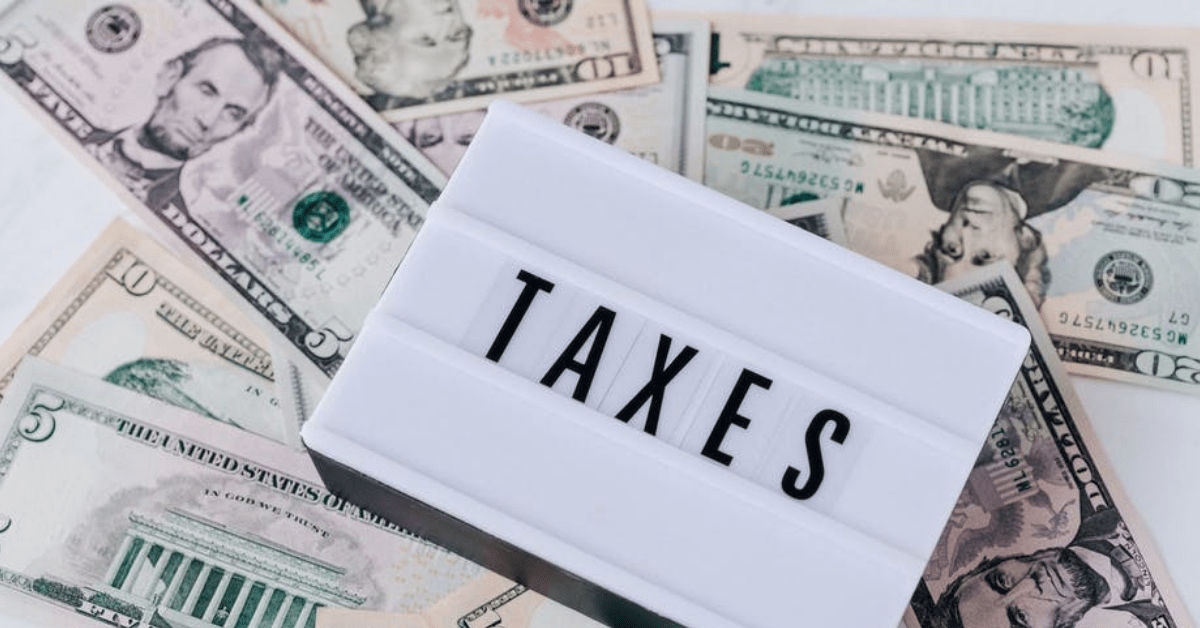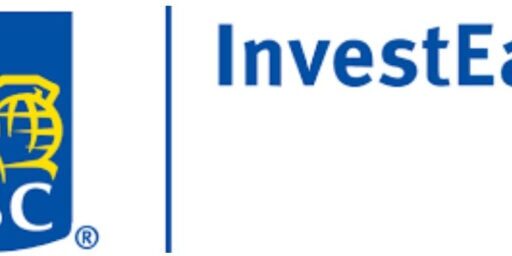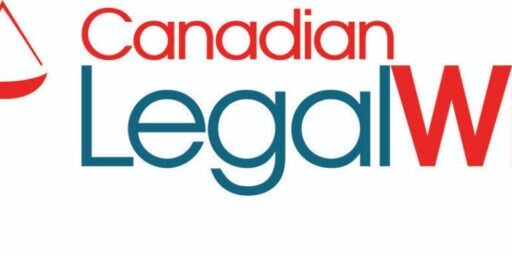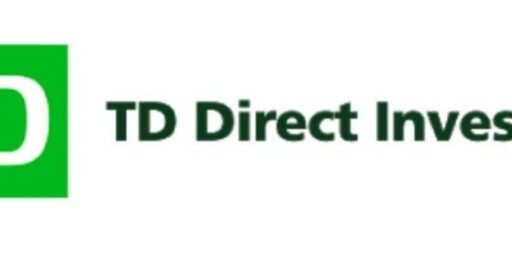The Real MER on ETFs – Foreign Withholding Taxes on ETFs
Because I’ve written a lot about the Best Canadian ETFs and the top dividend ETFs, I tend to get a lot of questions and comments asking me about the MER and taxes on ETFs that hold equities from other countries.
Obviously when you’re asking those types of in-depth questions you already understand the value of index investing, and instant diversification. Personally, I like to balance my love of Canadian dividend stocks, with non-Canadian ETFs to get super-convenient international exposure.
I would say that at this point, I’ve got a fair amount of hard-earned expertise when it comes to the largest Canadian dividend payers. That expertise requires hours of reading every quarter though, to make sure that I stay on top of earnings, debt levels, management strategies, etc.
Frankly, I don’t have the time to become an expert on the massive universe of international stocks as well. But while I don’t have the time and knowledge to pick international stocks, I do have the time to research just how important international diversification is in my overall portfolio. Consequently, I know that I want exposure to much more than the 3% of the world economy that Canada offers.
Non-Canadian index funds are the easiest way to do this. My wife and I each have international ETFs in our RRSPs, my wife’s LIRA, and in our children’s RESPs. In order to benefit from international stocks you can either opt to prioritize convenience and use a Canadian all-in-one ETF, or you can prioritize optimization of taxes and MERs with individual international ETFs. If you opt for the second path, you need to be aware of ETF withholding taxes in Canada, and how taxes on ETFs differ between dividends and capital gains.
Stocktrades ETF Insights is a Canadian platform that lets you easily compare between more than 5,200 different ETFs. You’ll get access to numerous investing and and analysis tools, as well as specific expert picks, a monthly newsletter and an active community.
They currently offer a 60 days money back guarantee + a 33% lifetime discount to all MDJ readers. All you have to do is sign up by clicking the button below. For more information, read our stocktrades review.
Do Canadians Pay Tax on ETFs?
Before we get into the gritty details of foreign withholding taxes, let’s take a step back and look at the broader picture of paying taxes on ETF investment gains.
As with other investments, ETFs can make you money in three ways:
1) Capital gains (you buy low the ETF low, sell high, the difference is a capital gain).
2) Dividends (the companies inside of an ETF pay dividends, which then get paid to you – usually every three months or once per year).
3) Interest (you would get interest income from cash ETFs or bond ETFs).
Each of these types of income will get taxed differently.
It’s also important to point out that if your ETFs are in an RRSP, TFSA, or RESP (amongst other registered accounts) you don’t pay any taxes to the Canadian government.
Of course, if your ETFs are kept in a non-registered account, then the Canadian government is going to charge you taxes on the dividends and interest that you earn each year. The tax rate that you pay on these ETFs will depend on the rest of your personal tax situation for that year. Capital gains on your ETF would only occur if you decided to sell some units of your ETF. For more details check out my article on investing taxes in Canada.
But there is also a whole other level of taxation at work when it comes to international ETFs. If you only invest in ETFs that hold Canadian assets AND are listed on a Canadian stock exchange (almost always the Toronto stock exchange) then you don’t have to worry about other countries taxing your investments. But if your ETF tracks assets in the USA or in other countries, then it’s probably that you’re going to be paying something called a foreign withholding tax on your dividend income before that money ever hits your brokerage account.
What is Foreign Withholding Tax?
When you buy U.S dividend stocks in a taxable account, you may notice that the dividend will have 15% withheld. That’s 15% providing you have filled out a W-8BEN, otherwise you’re looking at a 30% clawback of your US-based dividend income. When you see money coming out of your dividend payment, that money is being used to offset your taxes owing on that dividend when you file your tax return.
What about US dividend stocks within an RRSP? For RRSPs, there is a tax agreement between Canada and the US that eliminates the 15% withholding tax on US dividends. While this is great, the agreement does not extend to TFSAs, so US dividends within a TFSA will face a non-recoverable 15% tax. This agreement means that there is a small-but-measurable boost when you make sure that you have your US-based investments inside of your RRSP.
Discover the best free ETF brokers in Canada
View our detailed Canadian broker analysis
Foreign Withholding Tax on ETFs?
So what about paying foreign withholding tax on US and international ETFs?
This is where it gets tricky!
While holding US stocks directly in an RRSP gets preferential tax treatment, did you know that a Canadian ETF that holds an underlying USA ETF does not qualify for the tax exemption? So essentially with the additional embedded tax, you are paying a higher MER than you think!
International equities from countries outside of Canada and the USA would be subject to withholding tax in an RRSP/TFSA, and gets even larger if the international ETF holds underlying ETFs. The bright side is that the more popular international equity ETFs like iShares XEF and Vanguard VIU hold individual stocks, which results in only one level of withholding tax.
An Example
For example, one of my favorite ways to get US exposure in my RRSP is through the iShares XUU because of the diversification and because of the extremely low MER of 0.07%.
However, since XUU holds underlying ETFs, it would face foreign withholding tax to the tune of 0.26%. This results in a total MER of 0.33% when held in an RRSP/TFSA.
As another example, one of my favorite international equity ETFs within my RRSP is owning iShares XEF. This ETF has a MER of 0.22%, but since it holds stocks directly (and not other ETFs), the resulting withholding tax is 0.27%. When holding in an RRSP/TFSA, the resulting MER/Tax combination is 0.49%.
Calculating Withholding Tax on Canadian ETFs
Justin Bender, from Canadian Portfolio Manager blog, does a great job explaining ETF withholding tax and has even created a nifty calculator that really helps simplify the concept.
Without getting into the details of how to calculate the withholding tax, let’s get into the good stuff and show the total MER including withholding tax in each account type of some popular ETFs.
U.S Equity ETFs
| ETF | TFSA | RRSP |
| XUU (CAD) | 0.26% | 0.26% |
| VUN (CAD) | 0.26% | 0.26% |
| ITOT (USD) | 0.26% | 0.00% |
| VTI (USD) | 0.26% | 0.00% |
International Equity ETFs
| ETF | TFSA | RRSP |
| XEF (CAD) | 0.27% | 0.27% |
| VIU (CAD) | 0.29% | 0.29% |
| IEFA (USD) | 0.67% | 0.25% |
Global Equity and All-in-One ETFs
| ETF | TFSA | RRSP |
| XAW (CAD) | 0.31% | 0.31% |
| VXC (CAD) | 0.31% | 0.31% |
| VGRO (CAD) | 0.19% | 0.19% |
| XGRO (CAD) | 0.17% | 0.17% |
| VBAL (CAD) | 0.17% | 0.17% |
| XBAL (CAD) | 0.13% | 0.13% |
*Note that dividends received from non-Canadian companies in non-reg accounts are taxed like interest (ie. added to your marginal tax rate). Also note the cost of foreign currency exchange from CAD to USD.
Tax Efficient ETFs in Canada: Horizon Swap ETFs
One way to beat the foreign withholding taxes on ETFs that give you American and international exposure is to take a look at the Horizon swap ETFs. These ETFs “swap” dividends for capital gains, and consequently eliminate the need for foreign withholding taxes to be paid at all.
But of course you don’t get anything for free in this world. In exchange for the instant elimination of one layer of ETF taxes, you have to consider the following trade offs.
- You’re going to pay a trading fee in addition to your MER fees. This fee can basically offset all of the foreign withholding taxes that you would be saving.
- The complexity of making sure that you have HXS in the right allocation amount – within the right accounts – is substantially more work than just buying an all in one ETF.
- There is a slight increased risk when using HXS due to the counterparty exposure. That said, National Bank (the counterparty) isn’t going anywhere anytime soon.
If you want to defer taxes from when you’re in a high tax bracket, to a time when you’re in a much lower one, then HXS and its capital gains magic is worth consideration. If you’re only looking for a way to avoid foreign withholding taxes then I would argue the juice isn’t worth the squeeze here. For more details on the way this ETF functions, see my article on Horizons swap based ETFs.
Is Minimizing Taxes on ETFs in Canada Worth It?
Look – there is a risk here that when it comes to Canadian ETF taxes, DIY investors can quickly lose the forest by staring at a single tree.
It’s important to emphasize that foreign withholding taxes only apply to the dividends of ETFs – not the overall return. So if your foreign ETF has a total return of 10%, and dividends are responsible for 2% of that return, then your .3% foreign withholding tax rate would only result in .60% being subtracted from your 10% return.
It’s really important to understand that the increased withholding tax rate does not apply to capital gains (which are likely to be the bulk of your returns on international equity ETFs over the long term).
Consequently, if you want to understand if cutting taxes on ETFs right to the minimum is worth it for you, then you have to put a price on your own time. If you thoroughly understand on how taxes on USA ETFs work (including how to minimize currency conversion fees), and how to optimize your TFSA vs RRSP vs non-registered accounts, then you can probably cut somewhere around .10% to .30% of your total tax/fee drag from the non-Canadian part of your portfolio. You can get more details on these tax optimization strategies here.
Over the long term that .10% to .30% savings will compound to a decent chunk of money – BUT – it’s quite a bit of work to keep rebalancing all of these different funds over separate accounts, and handle the currency conversion logistics in a way that minimizes fees.
That’s why most folks would opt for the convenience of a Canadian portfolio ETF, as it’s just so much easier to handle, and the price is a relatively low one to pay for not having to pour over multiple account balances each quarter in order to ensure that you’re overall asset allocation strategy stays in tune with your foreign withholding tax minimization strategy.











thank you for this information. I have USD and maxed out rrsp. So I have no option but to add to tfsa . I was planning to buy VTI to avoid currency conversion. So the dividend gets taxed at 15 % but the MER does not change in this case ? How is MER in this case?
Thank you for this information.
Where/How do I find if the ETF has an underlying ETF’s that would affect the total MER.
Im looking at VFV
Hello,
I was just taking a look at my questrade account history for my rrsp account. I currently hold XUU in the account. In comparing my actual dividend payouts to the ones posted on ishares website i don’t see any difference, that is i do not see any deductions for the withholding tax. Am i over simplifying this check? Is there a better way to see how much i’ve been paying / losing in withholding taxes?
Thank you
Beginner here, go easy on me.
Why is the MER lower for non-registered accounts lower? Is it just because those taxes come out separately at tax time? And if so, how does that effect the net gains, is it any different?
Thanks for any help.
Hi Calum, it has to do with tax treaties that Canada has with other countries. Also, the withholding taxes mentioned here are not paid out of pocket during tax time, they are taken out of returns.
Are the etf trailing returns on morningstar.ca net of fwt? Thks.
It would be challenging to calculate returns net of FWT due to different percentages for different accounts. I would assume no.
After reading this article and realizing that ETFs have additional cost in FWT I started looking into the TD eSeries if they have FWT as well. I was looking at the RRSP account in the comparison between the ETFs and the TD Index funds. Based on your table above for RRSP accounts the VGRO is 0.46% and XGRO is 0.41% respectively. These percentages come in line with the MERs for the TD index funds (0.35% for TDB902 and 0.51% for TDB911). However, the CCP in this article https://canadiancouchpotato.com/2014/02/20/the-true-cost-of-foreign-withholding-taxes/ states that the TD funds real expense is 0.65% and 0.84% for TDB902 and TDB911 respectively. This would make an average MER of 58% for asset allocation of 25% for each of CND, US, Intl equities and bonds, which is still more expansive than the ETFs. Are my assumptions correct? Please let me know. Thanks!
Hi Strela, yes you are correct. TD funds would have FWT added on top of the stated MERs.
Am I reading the holding details correctly in this situation?
iShares XUS/XUU is about 78% IVV
Vanguard VFV on the surface doesn’t show that it is primarily holding an underlying US listed ETF.
If my understanding is correct, it is obviously much more efficient to hold VFV in a registered account.
It seems to read similarly for Vanguard’s other international etf’s as well. VE etc.
Thanks
Am I in fact
Hi Garth, check out today’s post on USD ETFs in your RRSP:
https://milliondollarjourney.com/building-a-simple-low-cost-indexed-etf-portfolio-in-usd.htm
Thanks for that.
1. Just an update on VTI, Vanguard lowered the MER to .03% as of the end of April.
2. Just to clarify that these modified MERs (that take into account taxes on distributions) are dependent on the amount of distributions each period. So if the distributions change, so does the modified MER; correct?
Thanks for the update Meeko!
What are your thoughts on holding HXS in your TFSA? Wouldn’t that overcome the withholding tax obstacle?
Hi Allan,
I would hold off on Horizon’s swap-based products until CRA provides clarify on how they plan to tax them going forward.
Thanks for the go-to post. This is a biggie as you write. Folks doing everything to lower fees (a staple for success) and then many are not aware of the withholding that is significantly more than the MER and quite significant over time. This is not greatly advertised, ha.
The Robo’s mostly will face this as well. They use those fund of funds or face some currency conversion charges. A few of ’em will set up US dollar accounts for specific purposes to hold US assets. Many Canadian retirees will hold US assets to fund and hedge their US trips – Snowbirds.
Dale